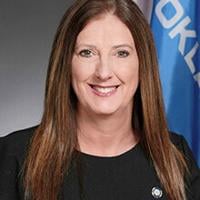As Chairman of the House Public Health Committee, I had the privilege of overseeing this week’s interim studies that unfolded before the panel.
The first study, held Monday, examined the causes and solutions to medical debt in Oklahoma and was organized by Rep. Suzanne Schreiber. This topic arises from ongoing conversations we’ve had for several years about price transparency and medical debt, which profoundly affect thousands of Oklahomans. It is estimated that nearly half of Americans have medical debt.
Eva Stahl, vice president of public policy at RIP Medical Debt, spoke to the committee via a live stream about the prevalence of medical debt, and she mentioned that medical debt is the leading reason for bankruptcy in the country.
She explained the difference between medical debt and financial debt, which affect a person’s credit score differently. Eva also mentioned that many states have considered regulating medical credit cards to protect people from high interest rates and accumulating additional debt, and that Colorado recently adopted a policy prohibiting medical debt from are reported to national credit reporting agencies.
The committee also met Tuesday to hear an interim study on mental health organized by Rep. Ajay Pittman.
We’ve heard statistics showing that 152 million Americans live in an area with limited access to mental health or are so busy that there are no new openings available. It also stresses healthcare providers: 75% of psychiatrists reported burnout in 2021.
One speaker said the pandemic has not only strained Oklahoma’s mental health system, but also exposed weaknesses that already existed within the system. She said ensuring people have access to care and ensuring there are enough providers are the two biggest issues to address.
Members listened to several policy suggestions, including annual mental health and wellness exams as part of insurance to facilitate early intervention, which is ultimately better for the patient and more effective in the long term .
It is important to note that interim studies do not constitute law. Instead, interim studies give us the opportunity to delve deeper into a topic that we wouldn’t have as much time to focus on during the semester. These are short meetings, usually with a handful of experts and stakeholders, who come together to share their knowledge and opinions on a specific topic. Sometimes the legislator organizing the study will introduce a bill based on what they learned during the study, but this is not always the case.
Public health continues to be a major topic of discussion at the State Capitol, and I am always happy to bring my perspective as a healthcare professional to these discussions. I will keep you posted on any major legislation, health-related or otherwise, as we head into the February session.
As always, please feel free to call my office at (405) 557-7365 or email me at cynthia.roe@okhouse.gov if you have any questions or concerns. Thank you for the honor of representing you at the State Capitol!
(Representative Cynthia Roe, Republican, represents District 42 in the Oklahoma House of Representatives. Her district includes parts of Cleveland, Garvin and McClain counties.)
